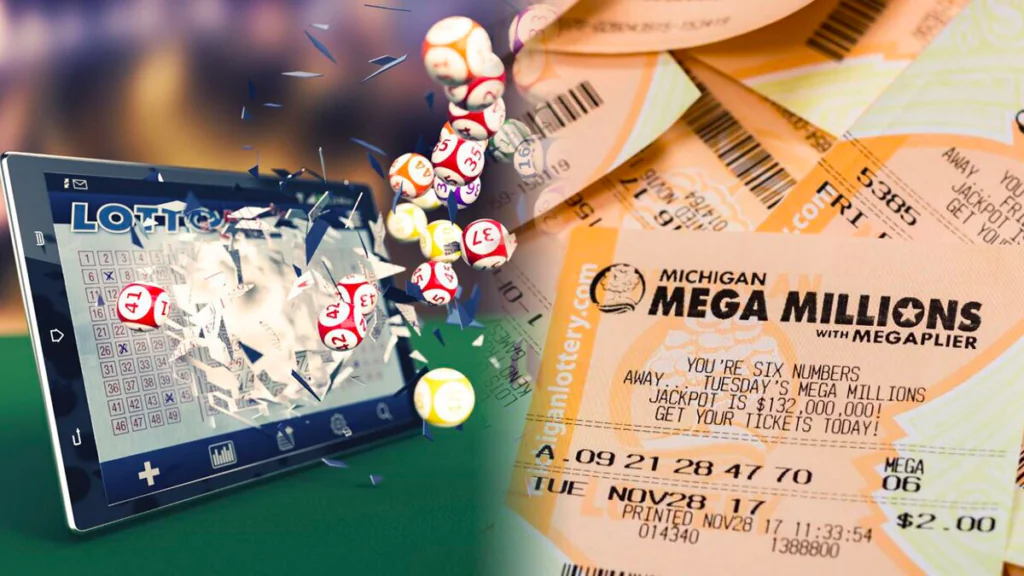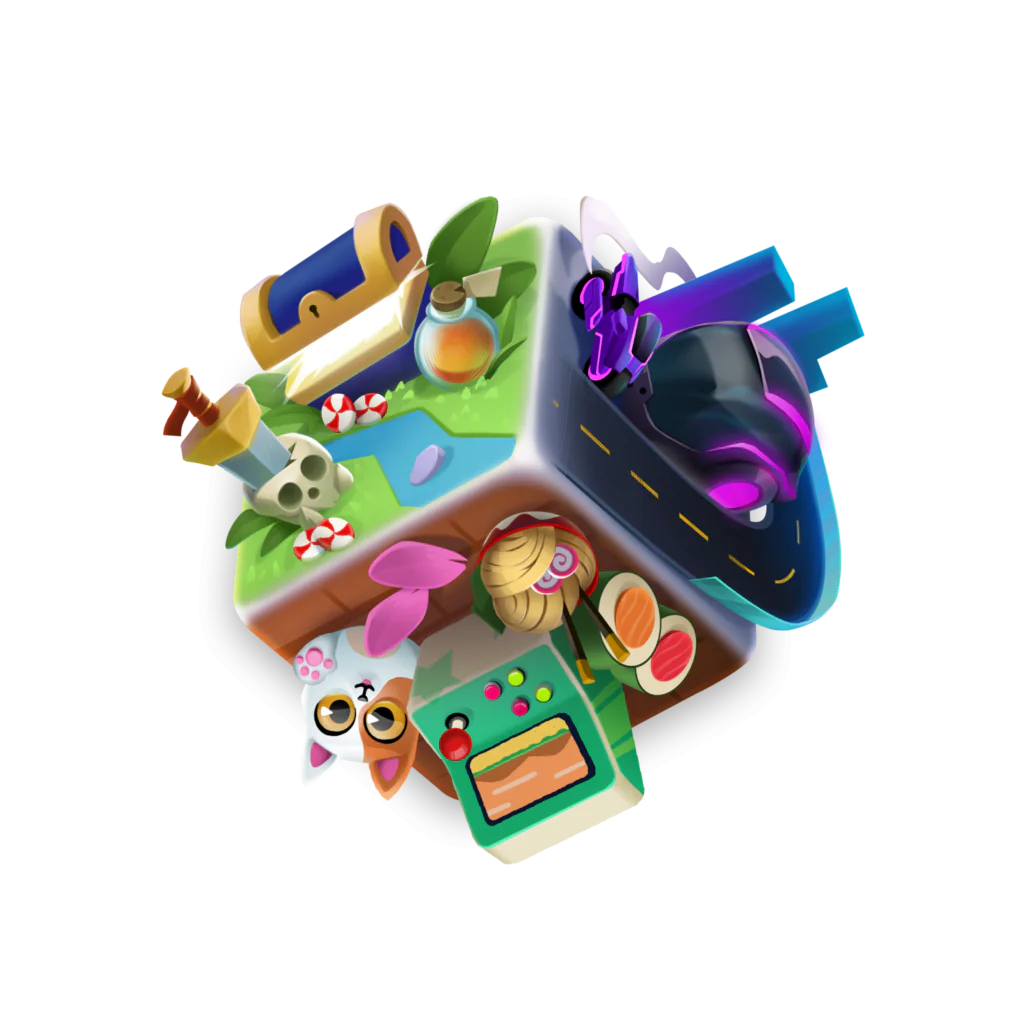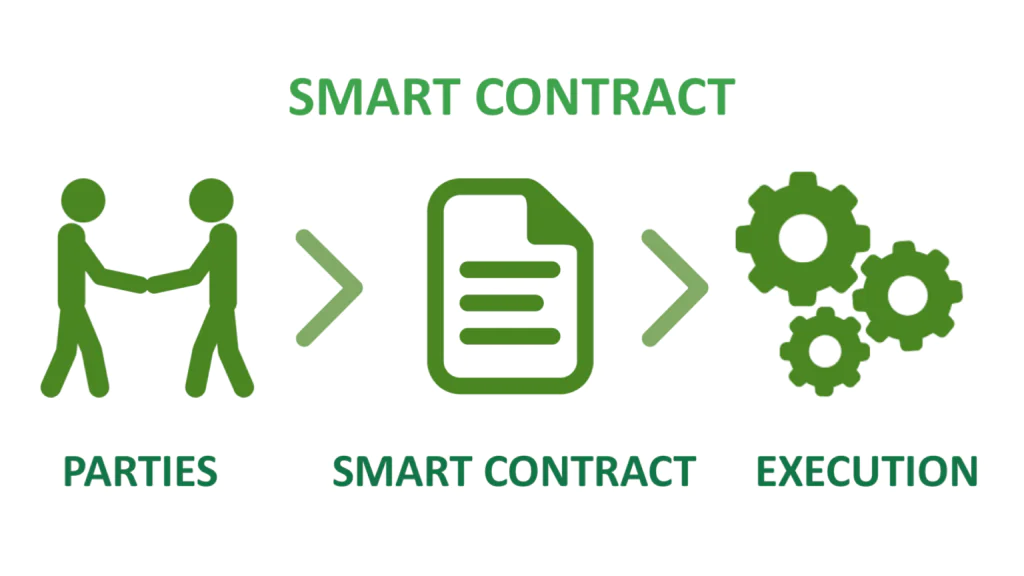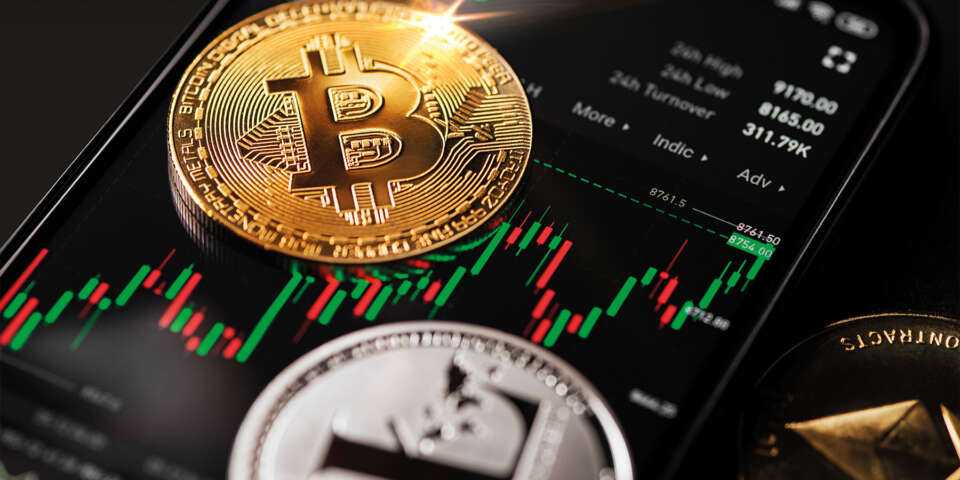Welcome to the world of decentralized lotteries, where innovation and excitement meet the online gambling industry. If you’re someone who enjoys gambling or has a curiosity for the latest advancements in this space, then you’re in for a treat. Get ready to embark on a journey that promises to revolutionize the way we gamble online.
Traditionally, online lotteries have been centralized, leaving gamblers at the mercy of intermediaries and facing concerns about transparency and trust. But now, a new era has dawned upon us, bringing decentralized lotteries to the forefront. These lotteries leverage cutting-edge blockchain technology and community-driven governance to redefine the landscape of online gambling.
Imagine a world where transparency is no longer a mere buzzword, but a fundamental aspect of every lottery transaction. Picture a system where security is not compromised, and you have full control over your bets and winnings. That’s the power of decentralized lotteries.
But it doesn’t stop there. Brace yourself for the potential of significant changes in the online gambling industry. Decentralization opens up a realm of possibilities in crypto casinos, from automated processes driven by smart contracts to the elimination of intermediaries, creating a direct and seamless experience for gamblers like yourself.
Understanding Traditional Online Lotteries
When it comes to traditional centralized online lotteries, it’s important to peel back the layers and understand their limitations. Imagine being in a crowded room where you can’t quite see what’s happening on the other side. That’s how centralized lotteries operate – they keep you in the dark, lacking transparency and leaving you uncertain about the fairness of decentralized gambling.

Trust becomes a crucial issue in centralized lotteries. You’re expected to place your bets using a crypto no-deposit bonus and hope for the best, without having complete confidence in the integrity of the process. It’s like playing a game of chance with a blindfold on, not knowing if the odds are truly in your favor.
Control is another aspect that is wrested away from you in centralized lotteries. You have to rely on intermediaries to manage your transactions, validate results, and distribute winnings. It’s akin to handing over the reins of your gambling experience to someone else, hoping they have your best interests at heart.
To put it into perspective, imagine a marionette controlled by a puppeteer. In centralized lotteries, you’re the marionette, manipulated by external forces that dictate the rules and outcomes. You become a passive participant in your own gambling journey.
Enter Decentralization
Now, let’s shift gears and introduce you to the concept of decentralization at casinos USDT – the key that unlocks a world of possibilities in online gambling. At its core, decentralization relies on blockchain technology, a secure and transparent system that operates without a central authority.
Decentralization addresses the shortcomings of traditional lotteries head-on. It brings transparency to the forefront, where every transaction, bet, and result is recorded on an immutable ledger. It’s like having a glass window that allows you to observe and verify every aspect of the lottery process, instilling trust and confidence in the fairness of the games.
Think of it as a peer-to-peer network, where each participant has equal power and visibility. In a decentralized lottery, you become an active player, engaged in a transparent ecosystem where you have direct control over your bets and winnings. No longer do you need to rely on intermediaries to manage your funds or validate outcomes. It’s a truly empowering experience.

Decentralized systems not only bring transparency and control but also introduce a level playing field. Imagine a global community of gamblers, connected seamlessly through a network that removes geographical barriers. In this decentralized realm, anyone can participate, regardless of their location or background. It’s like joining a vibrant marketplace where opportunities are open to all.
So, welcome to the world of decentralized lotteries, where transparency, trust, and control are not just ideals but the foundation of your gambling experience. Embrace the power of decentralization, as it ushers in a new era that redefines the way we gamble online.
Transparency and Security
In the realm of blockchain-based casinos, transparency takes center stage, transforming the way lottery operations are conducted. Traditional lotteries often leave participants in the dark, questioning the fairness of the process. However, decentralization brings a breath of fresh air, infusing transparency into every aspect of lottery operations.
Real-life examples vividly demonstrate the benefits of transparency and security in decentralized lotteries. Consider a decentralized lottery platform where every participant can access the blockchain ledger and verify the authenticity of each draw. The winning numbers are determined by a verifiable algorithm, ensuring that no manipulation or bias is present. This transparency instills trust in the system, assuring participants that they are engaging in a fair and unbiased gambling experience.
Furthermore, the immutability of lottery transactions provided by blockchain technology has tangible advantages. Picture a scenario where a participant wins a substantial prize. With decentralized lotteries, the payout process is automated and executed through smart contracts in decentralized gambling. These self-executing agreements ensure that winners receive their prizes promptly and without the need for intermediaries. The transparent and secure nature of the blockchain guarantees that the payout will be carried out as programmed, leaving no room for disputes or delays.
In summary, decentralization brings transparency to lottery operations by leveraging blockchain technology. The distributed ledger ensures that every participant can validate and trust the integrity of the lottery process. Furthermore, the security and immutability of transactions provided by blockchain technology guarantee the fairness and promptness of prize payouts. Real-life examples illustrate how transparency and security are fundamental pillars in decentralized lotteries, enhancing the overall gambling experience for participants.
Smart Contracts and Automated Processes

In the realm of decentralized lotteries, smart contracts take center stage, revolutionizing the way lottery operations are conducted. These intelligent pieces of code play a vital role in automating processes and eliminating the need for intermediaries.
In the context of decentralized lotteries, smart contracts serve as the backbone of the entire operation. They define the rules of the game, handle the distribution of tickets, and determine the selection of winners. Once the conditions specified in the smart contract are fulfilled, it automatically triggers the necessary actions, ensuring a smooth and transparent process.
To simplify the concept further, let’s imagine a vending machine. When you insert the correct amount of money and select your desired snack, the machine automatically dispenses the item to you. In this scenario, the vending machine represents the smart contract, while your payment and selection represent the predefined conditions. The entire process is automated and executed without the need for a human intermediary.
Similarly, in a decentralized gambling industry, the smart contract acts as the vending machine. You purchase your tickets, and when the draw takes place, the smart contract automatically determines the winners and distributes the prizes accordingly. It’s a seamless and efficient process that removes human intervention, ensuring fairness and eliminating the possibility of manipulation.
Eliminating Intermediaries
Traditional lotteries often involve intermediaries, which can come with their fair share of disadvantages. Let’s shed some light on these drawbacks and explore how decentralization eliminates the need for intermediaries, paving the way for a more direct and advantageous gambling experience.
In traditional lotteries, intermediaries act as middlemen between participants and the lottery operators. While they may serve important roles, such as ticket sales, prize distribution, and result validation, their involvement introduces several limitations.
Firstly, intermediaries introduce an additional layer of complexity and bureaucracy. Transactions and prize payouts often require multiple steps, increasing the chances of errors or delays. This lack of direct interaction can leave participants feeling disconnected and dependent on third parties for their gambling experience.
Moreover, intermediaries can raise concerns regarding trust and integrity. Participants must place their faith in the intermediaries’ ability to handle their funds and ensure a fair outcome. Unfortunately, cases of fraud or mishandling of funds have occurred in the past, eroding trust in the system and leaving participants questioning the legitimacy of the lottery.
Decentralization, on the other hand, eliminates the need for intermediaries in the realm of lotteries. By leveraging blockchain technology and smart contracts, decentralized lotteries enable direct peer-to-peer interactions among participants. This shift brings forth several advantages.
Community Governance
In decentralized lotteries, community governance plays a vital role in shaping the direction and operation of the platform. Unlike traditional lotteries where decisions are made by a centralized authority, decentralized lotteries empower participants to have a say in the decision-making process.
Participants in decentralized lotteries become active contributors and decision-makers. Through community-driven governance mechanisms, they can propose and vote on important matters that affect the lottery platform. This can include decisions regarding rule changes, new features, prize distribution mechanisms, and more.
The benefits of community-driven governance are significant. Firstly, it fosters a sense of ownership and inclusivity among participants. They become stakeholders in the platform and have a direct influence on its development. It’s like being part of a democratic system, where the voice of each participant matters.
Moreover, community governance enhances transparency and trust. As participants have visibility into the decision-making process, they can ensure that the lottery platform aligns with their values and expectations. It creates a sense of accountability, as decisions are made collectively and in the best interest of the community.
🎲Tokenization and Incentives
In decentralized lotteries, tokens play a pivotal role in facilitating transactions and enabling various incentives for participants. Tokens serve as digital assets that represent value within the ecosystem.
Tokens can be used to purchase lottery tickets, participate in games, or access exclusive features. They provide a standardized and efficient means of exchange within the decentralized lottery platform.
Furthermore, tokenization enables a range of incentives that enrich the participant experience. For example, participants can earn tokens as rewards for their active engagement, such as referring new users, participating in community activities, or achieving specific milestones. These token rewards incentivize continued participation and contribute to a vibrant and engaged community.

Additionally, token holders may have the opportunity to stake their tokens. Staking involves locking up a certain amount of tokens in the platform, which helps secure the network and validate transactions. In return for staking their tokens, participants can earn additional rewards or voting rights in the governance process.
Tokenization creates a dynamic and self-sustaining ecosystem where participants are motivated to actively participate and contribute. It’s like having a currency specifically designed for the decentralized lottery platform, with rewards and incentives tailored to enhance the overall gambling experience.
🎲Global Access and Inclusivity
Lotteries at decentralized casinos break down geographical barriers, providing access to anyone with an internet connection. Participants from different parts of the world can engage in the lottery platform without being restricted by their physical location.
This global access is made possible through the decentralized nature of the lottery platform. Unlike traditional lotteries that may have jurisdictional limitations, decentralized lotteries operate on a borderless infrastructure. They transcend boundaries and create a global marketplace for gambling enthusiasts.
This inclusivity brings numerous benefits. Firstly, it expands the pool of participants, creating a more diverse and engaging community. Different cultures, perspectives, and experiences converge, enriching the overall gambling environment.
Furthermore, decentralized lotteries promote financial inclusion. Participants from regions with limited access to traditional financial services can engage in the lottery platform without the need for a traditional bank account or credit card. All they need is an internet connection and a compatible digital wallet.
To illustrate the concept, imagine a borderless marketplace where individuals from different countries can freely trade and interact. In this marketplace, anyone can participate and engage in economic activities, transcending the constraints imposed by physical borders. Decentralized lotteries operate similarly, providing a global stage for gambling enthusiasts to come together and enjoy the excitement of lottery games.
In summary, decentralized gambling platforms provide global access and inclusivity by eliminating geographical restrictions. Through the use of blockchain technology, participants from around the world can engage in the lottery platform, fostering a diverse and vibrant community. It’s like being part of a borderless marketplace, where opportunities and experiences are open to all, regardless of their location.
🎲Disrupting the Status Quo
Decentralized lotteries are poised to challenge the traditional gambling industry, sparking a wave of disruption that promises to reshape the landscape. They bring forth a fresh perspective, offering an alternative to the dominance of centralized platforms.
In many ways, decentralized lotteries embody the story of David and Goliath. Traditional gambling giants, representing the Goliaths of the industry, have long controlled the narrative and held a significant share of the market. But here comes David, in the form of decentralized lotteries, armed with innovation, transparency, and user empowerment.
Decentralized lotteries disrupt the status quo by addressing the shortcomings of centralized platforms. They provide transparency, trust, and community-driven governance that were previously lacking in the traditional gambling industry. Participants can actively engage in decision-making processes, ensuring that their voices are heard and valued.
Moreover, decentralized lotteries have the potential to reduce the dominance of centralized platforms. By offering an alternative that prioritizes fairness, transparency, and inclusivity, they challenge the established order. Participants have more options, and centralized platforms may face increasing pressure to adapt or risk losing relevance in the face of this disruption.
The analogy of David and Goliath helps visualize the disruption brought by decentralized lotteries. Just as David’s ingenuity and determination triumphed over the seemingly unbeatable Goliath, decentralized lotteries have the power to reshape the gambling industry, level the playing field, and empower participants.
🎲Regulatory Considerations
As with any innovative technology, decentralized lotteries face regulatory challenges that need to be addressed. Governments and regulatory bodies grapple with the unique characteristics of decentralized systems, seeking to strike a balance between innovation and consumer protection.
Establishing guidelines and frameworks is crucial to navigating these regulatory challenges. It’s essential to create a clear and transparent regulatory environment that fosters the growth and development of decentralized lotteries while ensuring compliance with legal requirements.
Responsible gambling practices are of paramount importance while regulating decentralized gambling. Ensuring that appropriate measures are in place to protect vulnerable individuals and prevent fraudulent activities is crucial. Collaborative efforts between regulators, industry participants, and technology developers are necessary to establish robust frameworks that promote responsible gambling practices.
By addressing regulatory challenges and establishing clear guidelines, decentralized lotteries can gain recognition and legitimacy in the gambling industry. They can coexist with traditional regulatory frameworks, allowing for innovation while upholding the principles of consumer protection and integrity.
🎲User Experience and Interface
Decentralized lotteries bring significant improvements to the user experience, creating a more intuitive and user-friendly environment for participants. User interfaces are designed with simplicity and accessibility in mind, ensuring that both novice and experienced gamblers can easily navigate the platform.
One of the key advantages of decentralized lotteries is the elimination of unnecessary intermediaries, resulting in streamlined processes. Participants can enjoy a frictionless experience, from purchasing tickets to receiving their winnings, without the need for complicated procedures or delays.
Existing decentralized platforms provide excellent examples of positive user experiences. These platforms prioritize intuitive interfaces that guide participants through the various steps, making it easy to understand how to participate in the lottery. The user interfaces are designed to be visually appealing and responsive, creating a seamless and engaging experience.
Moreover, decentralized lotteries often leverage innovative features enabled by blockchain technology, such as instant payouts, secure transactions, and real-time updates. These features enhance the user experience, offering convenience and peace of mind to participants.
In summary, decentralized lotteries bring user experience improvements by offering intuitive and user-friendly interfaces. By eliminating intermediaries, participants can enjoy streamlined processes and frictionless transactions. Existing decentralized platforms serve as testaments to the positive user experiences that can be achieved. The ultimate goal is to provide a seamless and enjoyable gambling experience that rivals, if not surpasses, the traditional centralized counterparts.
🎲Challenges and Future Outlook
Decentralized lotteries, despite their immense potential, are not without challenges and obstacles on the path to widespread adoption. Understanding and addressing these challenges will shape the future of decentralized lotteries and their impact on the online gambling industry.
One significant challenge is scalability. As decentralized lotteries gain popularity and attract more participants, the underlying blockchain technology must be able to handle the increasing transaction volume without sacrificing efficiency. Scalability solutions, such as layer-two protocols or off-chain transactions, are being explored to mitigate this challenge.

Another hurdle is the adoption of decentralized lotteries by the broader gambling community. While the benefits of transparency, security, and community governance are clear, educating and convincing traditional gamblers to embrace this new paradigm may take time. Overcoming resistance to change and fostering trust in decentralized systems will be crucial for widespread adoption.
Technological advancements will also play a vital role in shaping the future of decentralized lotteries. Innovations in blockchain technology, such as improved consensus mechanisms and privacy features, can further enhance the scalability, security, and user experience of decentralized lotteries. Interoperability between different blockchain networks may also foster greater collaboration and expand the reach of decentralized lotteries.
Despite these challenges, the future for decentralized gambling is promising. The potential for further innovation and growth is immense. As the technology evolves and matures, decentralized lotteries will continue to disrupt the traditional gambling industry, offering a more transparent, fair, and inclusive gambling experience for participants worldwide.
🎲Conclusion
Decentralized lotteries herald a new era in online gambling, driven by transparency, trust, and community empowerment. In contrast to the limitations of traditional lotteries, decentralized lotteries bring innovation, fairness, and control to the gambling experience.
We explored how decentralization addresses the drawbacks of traditional lotteries by introducing transparency through blockchain technology, eliminating intermediaries, and fostering community-driven governance. Smart contracts automate processes, ensuring fairness and efficiency without the need for third-party intervention.
We discussed how tokenization provides incentives and enhances participant engagement, while the global accessibility of decentralized lotteries breaks down geographical barriers and promotes inclusivity.
Decentralized lotteries challenge the traditional gambling industry, offering an alternative that disrupts the status quo. They have the potential to reduce the dominance of centralized platforms and create a more dynamic and participatory environment.
While regulatory considerations and user experience improvements remain important, the challenges faced by decentralized lotteries are being addressed through scalability solutions, increased adoption, and ongoing technological advancements.
In conclusion, decentralized lotteries have the power to revolutionize online gambling, providing transparency, fairness, and control to participants. We encourage you to explore and embrace this new era in gambling, and be part of the exciting journey as decentralized lotteries shape the future of the industry.



